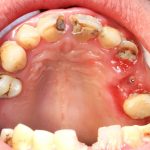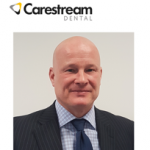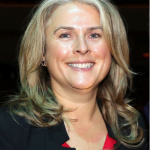Looking back on almost 20 years’ experience as a Practice Manager, never before has there been as much responsibility on the shoulders of Practice Managers, and now more than ever, they are finally getting the acknowledgment they deserve. When I began as a PM back in 1998 at the age of 19, the role could be quite basic and there was not the level of compliance or responsibility that comes with it now. In those days I learnt as I went along, and quite frankly, from the many mistakes that I made.
There cannot be too many careers in which one is expected to be an HR Manager, Marketing Manager, Compliance Manager, Business Manager, to name just a few, whilst also being an approachable, occasional shoulder-to-cry-on and not forgetting referee! The role needs to be carried out to the highest of standards, often without any formalised, additional training, other than Core CPD.
However, it would be fair to say that the role has evolved at different rates in different practices. Following ADAM’s 2017 Salary Survey, it demonstrated that there was a huge range of pay disparity that was often (although not always) dependent or linked to the scale of responsibility the PM was working at. So, is this the fault of practice owners not understanding, or PM’s not asserting themselves and demanding the credit and pay that is due to them? Part of the problem for PMs is not being aware of what they don’t know, and then finding out where they can gain the training and skills to equip them in their roles. There are often no allowances for error, and certainly not in areas such as HR and Compliance where there are legal implications.
In my experience, the majority of PM’s are happy to take on a huge workload, but too often are also expected to be a receptionist one day and maybe a dental nurse the next in addition to their PM roles and often without the reflection in remuneration. Many dentists are so busy treating patients (which is as it should be) that they sometimes don’t realise the extent of the workload or the systems that are in place and being used by the whole team, to ensure the smooth running and success of their practice.
I would like to say that I don’t believe there is a vast swathe of PM’s that are being undervalued, but for those grafting away and feeling overworked, underappreciated and underpaid, the quote “You get what you pay for” springs to mind.
Many of you may not know that Chris Barrow was involved with the BDPMA in the 1990s. I caught up with him and asked for his take on the massive changes in the role of a dental practice manager over the last 20 years.
“Back in 1997, when the BDPMA was representing the profession, I wonder what the reaction would have been if I had predicted that 20 years later:
• Qualification courses all the way up to MBA standard would be offered by academic institutions;
• The fully-functioning Practice Manager would have to demonstrate leadership and management skills in key business functions, including financial monitoring and analysis; branding; patient relationship management; post-treatment follow-up; and clinical governance.
A good practice manager is integral to the running of a successful practice. Indeed, John Milne, CQC’s Senior National Dental Adviser, recently said at a CQC Reference Group Meeting: “The CQC inspection programme, to date, has found that a delegated and empowered practice manager is a key component of a well led practice.”
Considering that the majority of failed CQC inspections are in the area of the “well led” outcome, surely there is no better reason, to not only look after your Practice Manager, but delegate, empower and reflect this in their salaries based on responsibilities.
Would anyone like to predict where we will be in 2037?!
















